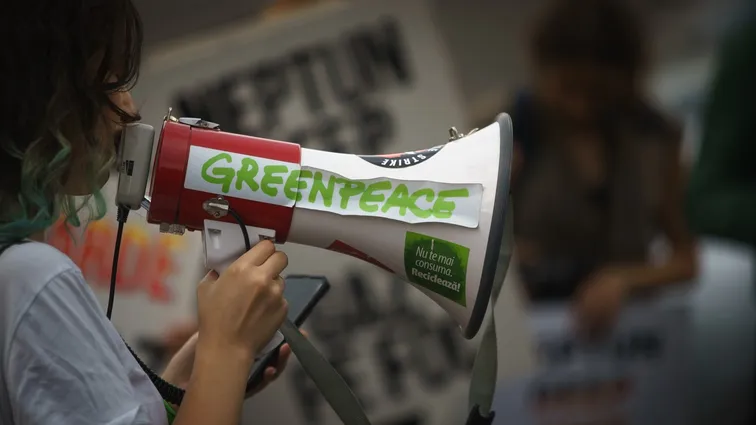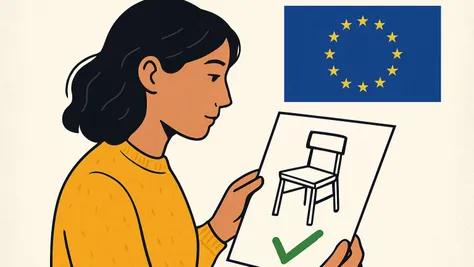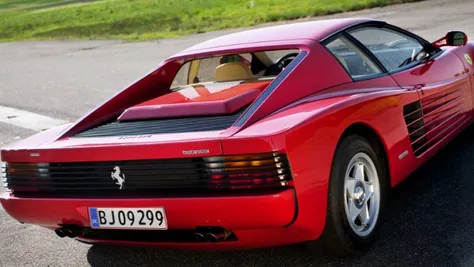Satire has been a social phenomenon since ancient Greece. And yet, we lawyers have not been able to agree on exactly where the boundaries are for engaging in lawful conduct and infringing on someone else’s rights. This space is explored with every new dispute, every new court decision, and every new attempt at satire, providing further necessary clues. In this case, this task was taken by ČEZ, a Czech electricity company, and Greenpeace, an environmental organisation. The apple of discord was a parody of a video ad. Did copyright protection prevail over freedom of expression? The case came all the way up to the Supreme and Constitutional Courts.
Imagine that you have created and published two commercials. The first is full of positive energy and conveys the joy of working for your company, while the other is about thanking your employees and customers for the past year during the Christmas holidays. However, you are about to discover soon that your creative work, your expensively produced commercial and your name have been reshaped in a way that shows a darker side of your business.
The case was brought before the Prague Municipal Court after Greenpeace turned ČEZ’s commercials into a critical warning about ecological disaster and climate change, which it blames on companies like ČEZ.
In one of the commercials, Christmas trees were replaced with destroyed forests and depleted lignite mines. Greenpeace edited ČEZ’s video into an unflattering collection. Is this a parody and satire permitted by law, offering society a new dimension of perception? Or is this rather a misuse of the original work to damage and discredit its author, which may be prohibited?
Parody versus copyright or other property rights
Czech courts have asked the same questions about whether Greenpeace’s conduct, i.e. editing ČEZ’s original commercials in that way, was unlawful. Is someone allowed to edit your footage and use it against you without permission?
From a legal point of view, we need to distinguish between the moral level, meaning that someone is publicly active, has an opinion about a certain company and wants to express their opinion publicly, and the copyright level, meaning that a short commercial has been created, with someone bringing their idea, creative talent and effort into it, paying for actors, locations and post-production, and connected the commercial with their logo and employees. After that, someone else comes along, takes that commercial, edits it – regardless of the money invested in the commercial – and creates something that criticises, ridicules, or otherwise parodies the original author.
No one has ever questioned whether it is possible to be critical of the largest Czech corporations and their business activities. However, the question at issue was whether it was possible to take their property, modify and edit it, and share it freely without permission.
ČEZ v. Greenpeace case
The Prague Municipal Court tried to cut this Gordian knot in the case of ČEZ v. Greenpeace concerning two different videos entitled “Kde jinde” (Where Else) and “Rozsvícení vánočních stromů” (Christmas Tree Lighting).
While ČEZ perceived such conduct as an unjustified interference with its (copyright) rights, as its work had been deliberately edited by Greenpeace to damage the company’s business and reputation, and at the same time to promote Greenpeace activities, Greenpeace, on the other hand, saw this situation as a justified criticism. Which position prevailed in the end?
First instance in favour of ČEZ, higher courts against
The dispute essentially consisted of two main aspects: whether the statutory licence under Section 38g of the Czech Copyright Act applies, which allows the use of copyrighted works for caricature, parody, or pastiche, and where the boundaries lie between freedom of expression and the protection of creative intellectual activity guaranteed by the Charter of Fundamental Rights and Freedoms.
Initially, the Prague Municipal Court ruled in favour of ČEZ, stating that Greenpeace’s conduct amounted to manipulation and misuse of the original works in order to defame the electricity company. However, both the High Court and the Supreme Court took the opposite view. They emphasised that such edited (audiovisual) works must be seen as an exaggeration and with an understanding of environmental activism, supporting a certain kind of creative protest. The Constitutional Court agreed with this opinion, pointing out that the right to freedom of expression must be respected and that one must be able to accept a certain degree of criticism of one’s activities, including through a parody in this format.
The Supreme Court held[1] that under the statutory licence provided in Section 38g of the Czech Copyright Act an audiovisual work may be modified by inserting new footage and used in this form for the purpose of parody. However, such action must always pass the three-step test to be legitimate. In the present case, the test was indeed passed, because the insertion of new footage fulfilled the purpose, “ridiculing” or ironising the original message. Any potential economic benefit of such a parody did not and does not have any bearing on its legitimacy. The Constitutional Court also reached the same conclusion.[2]
Society, not the courts, judges humour
Since the circumstances of the publication made it obvious that:
- it was not an official ČEZ advertisement;
- the aim was to use irony to draw attention to the impact of ČEZ’s activities on the environment (the company operates in the energy sector, which is inherently associated with massive environmental interventions);
- the manner of dissemination of the video could not cast doubt on its parodic meaning and idea; and
- the content was a factual criticism rather than an attack calling for direct violence or hateful content,
the courts have held that such use of the work is in accordance with law.
In this context, the Constitutional Court has strongly emphasised the importance of parody, hyperbole, and humour in society as a means of promoting and developing free discussion in society. The question remains, however, whether the courts would have been similarly benevolent towards similar use if the environmental organisation and the electricity company had switched positions in creating a video and making a parody. Another question is what would have happened if the dispute had arisen between two business companies, one selling a less environmentally friendly product and the other a more environmentally friendly one. As such a situation would be quite different, we can assume that there would be no such room for parody and satire.
- [1] – For the dispute over the “Where Else” commercial, see the Supreme Court’s judgment of 28 July 2023, File No. 23 Cdo 2178/2022-188; For the dispute over the "Christmas Tree Lighting” commercial, see the Supreme Court’s decision of 28 July 2023, File No. 23 Cdo 2403/2022.
- [2] – The Constitutional Court’s judgment of 10 January 2024, File No. I. ÚS 2956/23.









